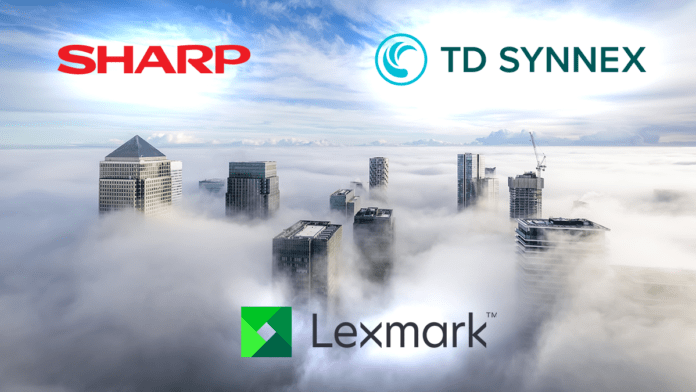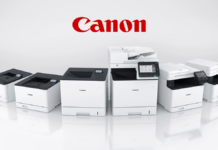The legal and financial sectors continue to rely on print, but their needs are changing – including a move more towards digitalisation – and resellers have a vital role in helping businesses to achieve the changes they are looking for.
The legal and financial sectors have long relied on print, more so than many other sectors. For instance, they often print and mail important documents and keep physical records, usually for legal and security reasons.
But, as with many other sectors, this reliance on print is changing with the increasing digitalisation of businesses and it is something that resellers must be alive to.
“Print has and will continue to be important to existing processes across the financial and legal sectors, however there is still a decline in volumes,” says Kerry Rush, product marketing manager at Sharp UK. “Although both sectors may never be truly paperless, the adoption of paper-lite processes are more common and continue to grow.
“It could be suggested that both sectors continued reliance on paper and print stems from caution around IT and cloud security. In fact, our recent research with IT decision makers across UK SME’s, uncovered that 66% of decision makers in finance and 88% in legal sectors lack confidence in their businesses ability to deal with IT security risks.
“We are also still seeing mono and colour print used heavily throughout the sectors due to requirements for paper-based documentation, which is compounded by the extended lifecycle and storage of documents in both sectors.”
Move to digitise
But that caution around digital and IT security is waning and there is now more of a move to digital technologies by legal and financial businesses, which provides opportunities to sell. “Alongside this there are greater requirements for the integration of digital workflows, meaning we can introduce cloud-based document management software, which enable workflow automation and document routing,” says Kerry. “This shift is mainly due to the fortification of post-pandemic hybrid working and the cost of real estate being at a premium. Across almost all sectors, there is now a permanent desire to keep information secure, while accessing it from anywhere and preventing valuable space being taken up with paper archives.
“Albeit there is a balance to strike between digital and print in these sectors. This is because our recent research uncovered that 28% of financial and 38% of legal IT decision makers cited software and systems being too complicated as a barrier to their businesses making the most of IT investments.
“With the rise of AI and Microsoft Copilot there is a buzz around digitalisation and automation,” she says. “Our clients are more aware than ever that they need to be implementing new technologies alongside existing print. Document management software is the perfect introduction into automation and digital data capture. However, risk-aversion in these sectors means this change can seem daunting.
“At Sharp UK we have knowledgeable teams of technical experts who support our clients during this kind of change, assessing their current print processes, digital transformation journey and recommending tailored solutions.”
Cloud-based services
Arjan Paulussen, managing director Lexmark UK, Western Europe and English-speaking Africa, agrees that for the legal and the financial sectors, digitisation is de rigueur, and this is informing buying decisions among customers. “Multifunctional devices form the basis of digitisation, they are the interface between paper-based and digital document management processes and, in combination with the cloud, make hybrid working possible in the first place,” he says.
Arjan cites research by Forbes, which found that 90% of CIOs confirm the use of cloud solutions in their company. “Almost half of them state that a large part of their IT budget currently flows primarily into the cloud,” he says. “We have been investing heavily in our cloud technology for the past five years and see the rapidly increasing demand as confirmation of this.
“Lexmark offers a comprehensive suite of cloud-based services. With the Lexmark Cloud Bridge, for example, we facilitate access to advanced managed print services (MPS), simplify the expansion of the system architecture to meet future connectivity requirements and can also manage heterogeneous printer fleets from different manufacturers.”
Other products are also proving popular among businesses in the sector, Kerry adds. “Sharp’s award-winning BP-Range A3 devices are hugely popular with financial and legal sectors due to their ease-of-use, native Microsoft Teams connector and enhanced security features,” she says. “These devices also have high powered scan functionality which allows businesses to ease into digital storage of paper assets.
“We are also seeing interest in our newly launched Workgroup A4 MFP Series devices, which cater for diverse workplace environments. To complement the devices, print management and document management software continues to be popular, as businesses seek to enhance efficiency and level-up security.”
Environmentally conscious
Chris Bates, director – print and supplies, UK and Ireland at TD SYNNEX, adds that the legal and financial sectors are extremely competitive and constantly developing and evolving. “The key trend at the moment is the move towards a more environmentally conscious approach to printing,” he says. “We support this through automation, technology and education.
“With our OpenMPS service, we provide a simple way for partners to offer managed print options to their customers – with on-site maintenance as well as automatic replenishment of cartridges. In the legal and financial professions, this is important as documents are vital to many processes.
“We’re working with vendor partners to bring the latest and most energy-efficient technology to partners. Our alliance with Epson, through which we are promoting its heat-free printing technology, is a prime example of this – we’ve recently integrated the Epson Workforce Enterprise series of A3 copiers and printers into OpenMPS, giving partners the opportunity to offer customers a complete service alongside the energy- and waste-saving benefits of Epson’s unique technology, from the point of installation.
“Sustainability and energy-saving are high on the list of customer requirements, and we’d urge resellers working in these sectors to consult with us first on their opportunities. There are many options and tools we can provide that will help them deliver an exceptional end-user experience that is eco-friendly and cost-effective, ensuring customer loyalty for life.”
Getting into the market
For resellers that don’t deal with the legal and financial sectors currently, both are worth considering exploring due to the range of opportunities that are available there.
“All resellers can explore entering these sectors because print and digital transformation are critical to their everyday processes,” says Kerry.
“While each sector has its own unique challenges, most are the same. For example, efficiency, cost saving and security focuses are found in most sectors. These are particularly prevalent in a turbulent economic environment with rising cybersecurity threats. For resellers this means every business leader in these sectors will be looking to technology and high-quality partners to support them in driving their business forward.”
Future demand
It is expected that there will continue to be opportunities for resellers in the legal and financial sectors in the future. For instance, Kerry says that she expects the demand for MPS in these sectors will continue in line with the demand for print. “In these service-based sectors, time and billable hours are money,” she notes. “So, it’s crucial businesses feel supported with their devices and MPS, requiring fast and effective service from their technology partner. They also expect a consultative partner who understands their needs, suggesting new solutions to support them in digitally transforming.”
Arjan agrees that MPS will play a pivotal role in the future for the legal and financial sectors. “It will help channel partners and companies achieve their sustainability goals and reduce their carbon footprint,” he says.
“The fewer printing devices a company requires, the fewer components need to be recycled or disposed of. Thanks to print release, which is standard with MPS fleets, decisions on which documents need to be printed are only made at the device, saving a significant amount of paper.
“With Lexmark Cloud Print Management (CPM), the number of pages printed can even be reduced by up to 30%. CPM offers further energy savings by eliminating the need for dedicated site-based print servers and using shared computing power in the cloud, reducing the environmental impact, energy consumption and maintenance activities. In Lexmark’s own use of Cloud Print Management, we have eliminated all our print servers, saving us more than $650,000 annually. Print spend has been reduced by 54%, printed pages by 48% and supplies usage by 77%.
“Furthermore, with advanced cloud fleet management and IoT-based predictive services as part of MPS, channel partners and companies gain access to detailed analytics, from usage patterns to toner consumption, replacement and service needs. This allows for potential failures to be detected before they even occur. Troubleshooting at Lexmark is carried out remotely in 70% of cases. On-site technician visits are not necessary anymore, which saves fuel and money.”
















